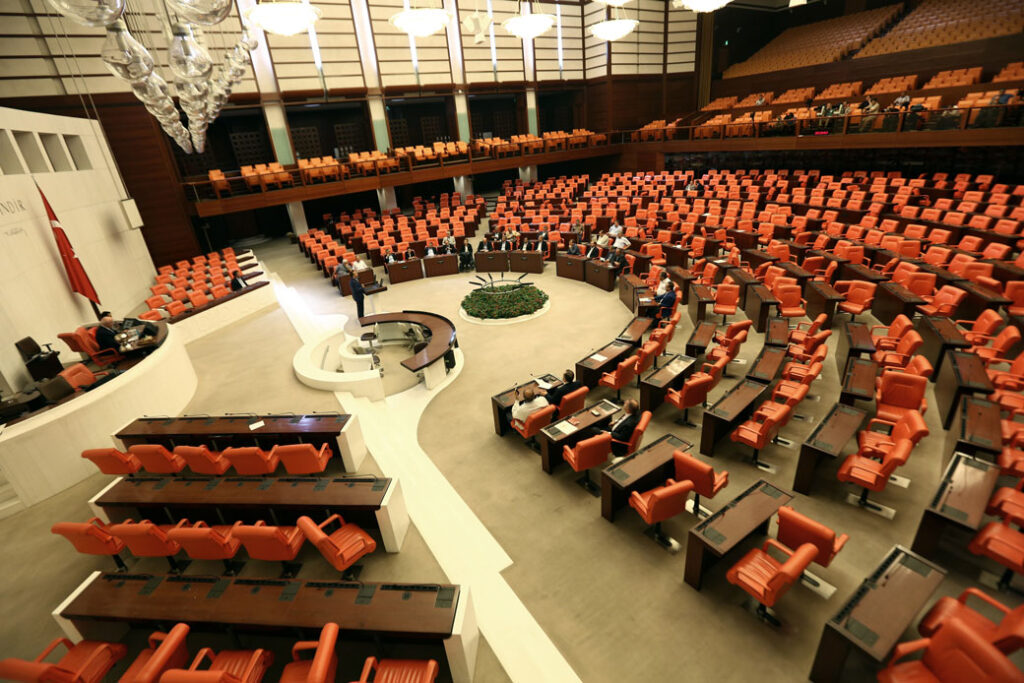In a bipartisan effort to curb the Chinese Communist Party’s (CCP) growing influence in Latin America, Chairman Mike Gallagher (R-WI) of the House Select Committee on the Chinese Communist Party, along with Senators Bill Hagerty (R-TN), Robert Menendez (D-NJ), Marco Rubio (R-FL), and Tim Kaine (D-VA), and Reps. Josh Gottheimer (D-NJ), Mario Diaz-Balart (R-FL), and Ruben Gallego (D-AZ), have introduced the Inter-American Development Bank Transparency Act. This legislation aims to address the CCP’s exploitative tactics at the Inter-American Development Bank (IDB) and reduce its malign influence in the region.
Chairman Mike Gallagher emphasized the need to protect Latin American citizens’ economic development and counter the CCP’s efforts to manipulate the IDB for its own geopolitical, economic, and technological goals. The bill requires the Treasury Department to keep Congress informed about the CCP’s coercive tactics at the IDB and urges the United States to leverage its influence to promote transparency and accountability while curbing the CCP’s interference in Latin America.
Senator Bill Hagerty highlighted the interconnectedness of economic security between the United States and the Western Hemisphere, emphasizing the importance of countering the CCP’s strategic maneuvers in critical resources and infrastructure investments in the region. Being the largest shareholder in the IDB, the US aims to prevent the PRC’s exploitation of the institution for its nefarious agenda.
Senator Bob Menendez stressed the significance of safeguarding the integrity of the IDB, which has been instrumental in fostering inclusive economic growth and infrastructure development across Latin America. He mentioned that the CCP’s economic tools are being employed to further its coercive agenda in the Western Hemisphere, making transparency and countermeasures vital.
Senator Marco Rubio expressed concern over China’s leveraging of the IDB for its expansionist goals and debt trap diplomacy, calling for a comprehensive action plan to reduce Beijing’s coercive and anti-democratic influence in the region.
Senator Tim Kaine echoed the need to push back on China’s malign influence to protect economic growth, national security, and good governance in Latin America, emphasizing the importance of the bipartisan bill in achieving these goals.
Rep. Josh Gottheimer asserted that concrete action is necessary to protect national security, bolster American competitiveness, safeguard infrastructure and the economy, and counter foreign aggression, particularly from China.
The Inter-American Development Bank plays a crucial role in Latin America’s development with significant annual financing. However, the CCP’s manipulative influence remains concerning. Despite owning a mere 0.1% share in the IDB, China ranks among the top countries awarded contracts by the institution, often pressuring nations to align with its interests.
The Inter-American Development Bank Transparency Act aims to use the United States’ influence at the IDB to counter the CCP’s malign practices. The bill requires a comprehensive report on the CCP’s influence within the IDB, the involvement of Chinese companies in IDB contracts, a list of projects near US military bases in the region, and the extent of CCP technology subject to US export controls involved in IDB projects.
Rep. Elise Stefanik voiced concerns about Communist China’s undermining of US partnerships in the Western Hemisphere through the IDB, and the legislation aims to ensure US taxpayer dollars are not used to support CCP-controlled companies that undermine America’s interests.
Rep. Jimmy Panetta highlighted the CCP’s utilization of the IDB to expand its reach and economic leverage in Latin American countries, emphasizing the importance of understanding the CCP’s influence and developing countermeasures.
Rep. Carlos A. Giménez emphasized the necessity of greater transparency at the IDB to limit the CCP’s weaponization of this significant institution, given China’s continued use of nefarious tactics to threaten Latin American neighbors and undermine US influence in the region.
This bipartisan effort reflects the united resolve of US lawmakers to protect Latin American development, safeguard national and economic security, and counter the CCP’s attempts to exploit multilateral institutions for its gain. As the bill progresses, it is poised to play a vital role in shaping US policy in the Western Hemisphere and curbing the CCP’s growing influence in the region.
